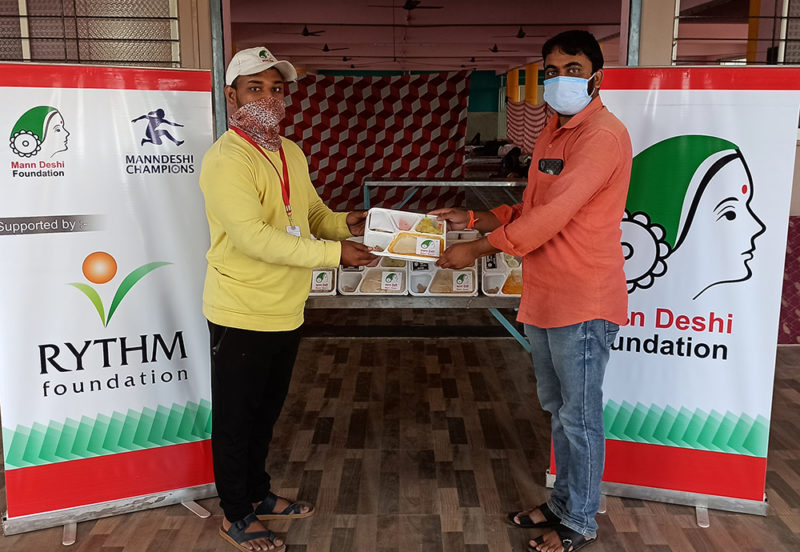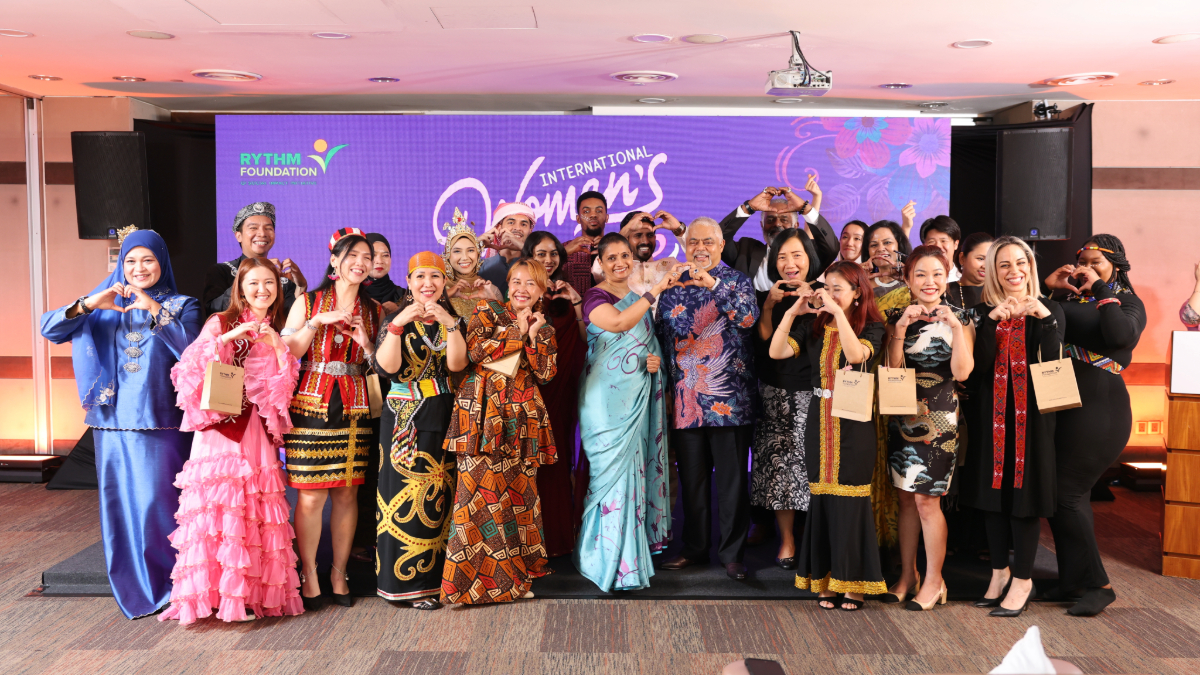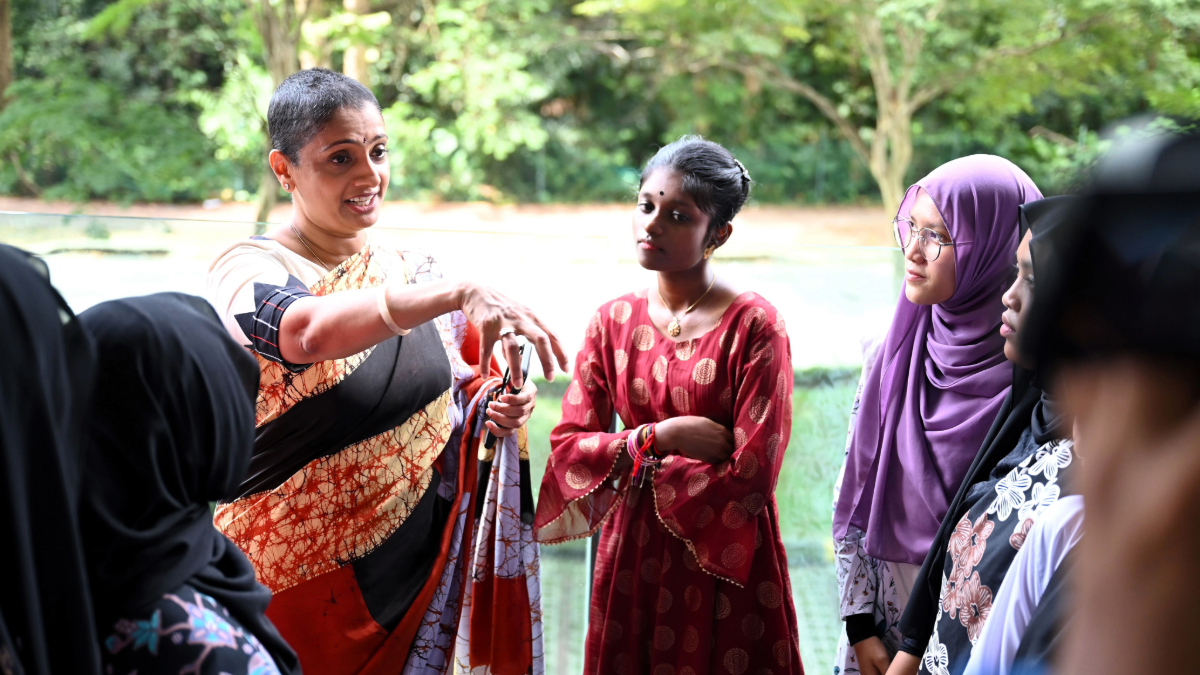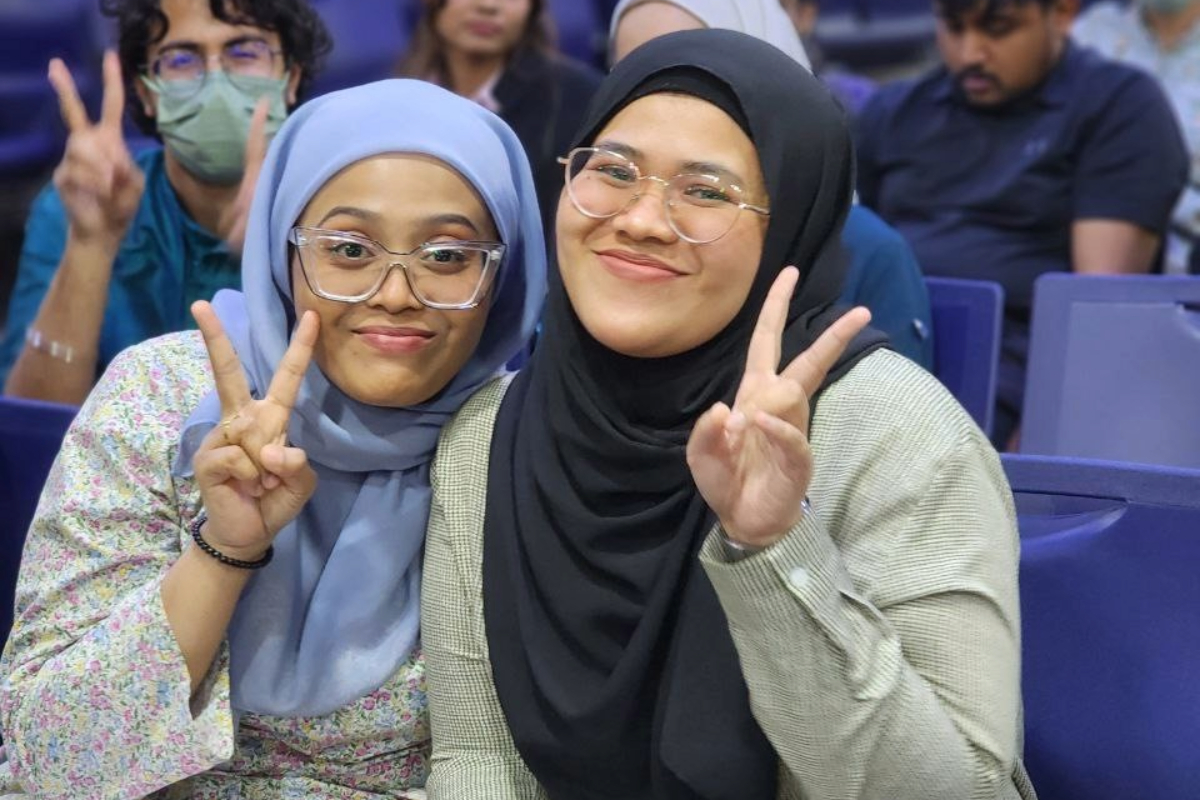QNET supports Mann Deshi and Parinaama Development Foundation to help with Covid relief in rural India
India has often been called a land of contrasts, a continent with paradoxes juxtaposed against one another. Even while fighting the effects of a pandemic that has had a devastating impact on the country, contradictory viewpoints exist. A case in point is the conflicting attitude towards vaccination. In the western peninsular state of Maharashtra, people are crowding vaccination centres, eager to get their shots despite the lack of access and current vaccine shortage. “This wasn’t the case in February before the second wave hit, because back then people were reluctant to get the vaccine. As the cases started increasing, they realised that the only way to survive is to get vaccinated. However, now, we are receiving only 40-50 doses per week for a small-town population of 40,000,” says Omkar Gonjari, Director of the Mann Deshi Foundation in Maharashtra. They want to get vaccinated but can’t, because there aren’t enough doses. Compare this with the eastern part of the nation, in Bihar and Jharkhand, folks are consumed by fear of being vaccinated and are refusing to do so. “In the first round of the vaccine programme, there were several deaths recorded in the rural districts of Bihar and Jharkhand. The communities have since been fearful of the vaccine because whether it is one death per population of 10,000 or 20,000 – it is a death after all. So, people are scared and wary,” explains Dr Madhavi Panda, founder and director of the Parinaama Development Foundation, which leads several community programmes in these states. Since the pandemic hit India with a vengeance, both the Parinaama and Mann Deshi foundations have been working round the clock to meet the needs of the communities in which they operate through various initiatives with the help of partner organisations. Among these is RYTHM Foundation, the corporate social responsibility arm of QNET. Funding provided by QNET through RYTHM Foundation to both the organisations is currently being channelled towards efforts to combat COVID. Both the Mann Deshi and Parinaama foundations are extremely grateful for their partnership with RYTHM, through which QNET has been able to support crucial COVID relief efforts for the marginalised communities in the east and the west of India.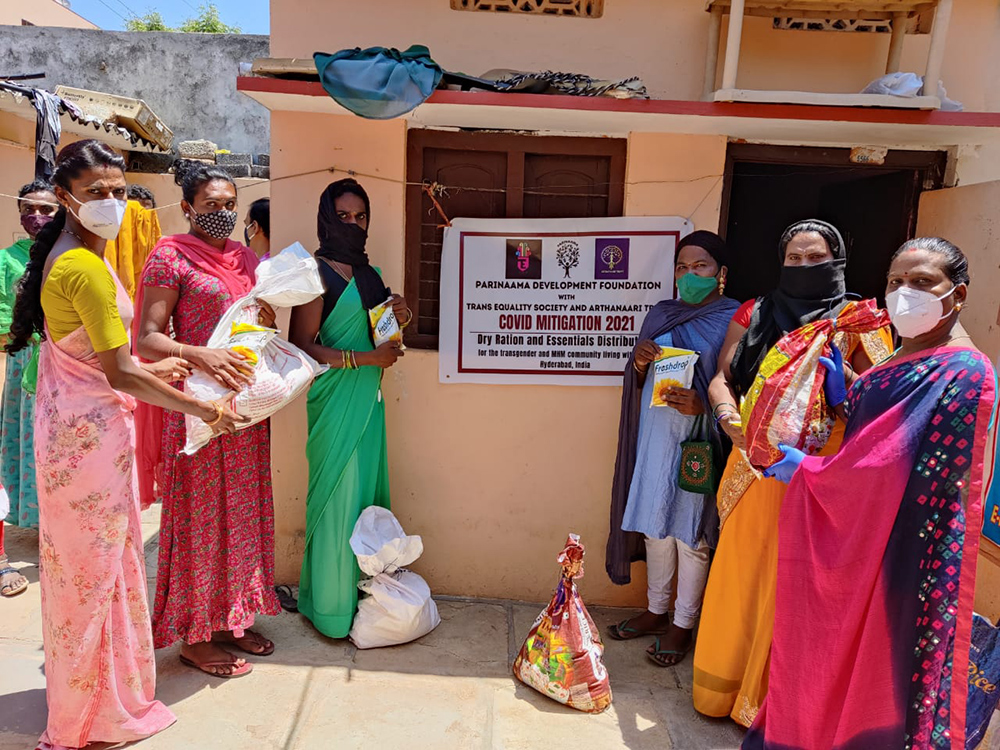 Prior to the pandemic, Parinaama had focused on creating sustainable livelihoods for marginalised communities through various social enterprises which manufacture soaps, clothing, and sanitary napkins. When COVID hit, the foundation immediately ramped up production of the soaps, sanitary napkins, and face masks to be distributed through their existing local chain. They also managed to address the overwhelming food shortages and lack of nutrition with their mushroom farming initiative.
Prior to the pandemic, Parinaama had focused on creating sustainable livelihoods for marginalised communities through various social enterprises which manufacture soaps, clothing, and sanitary napkins. When COVID hit, the foundation immediately ramped up production of the soaps, sanitary napkins, and face masks to be distributed through their existing local chain. They also managed to address the overwhelming food shortages and lack of nutrition with their mushroom farming initiative.
“Parinaama was well poised to support the community, thanks to these programmes. That’s where our strength comes from. We scrutinised all our different elements and realised that we could be distributing these essential products to help our community in a big way. Thankfully, the way our programmes were structured, and locations of our existing projects allowed us to quickly devise our relief efforts,” says Dr Madhavi.This year, in light of the fear and suspicion towards vaccination, the foundation has turned its focus to creating a vaccination awareness programme amongst the communities in Bihar and Jharkhand. The foundation mobilised its vehicles to broadcast messages from the government about the benefits of the vaccine in the vernacular language of the targeted areas.
“It is a good initiative, because we are able to execute it while maintaining social distancing as people are able to sit at home and listen to the broadcasts. We want to educate and encourage people in our community to get on board with the vaccine programme. I hope that people will come forward for the registration as soon as there is a supply of vaccines because we are reaching out through all the channels at our resource,” says Dr Madhavi.With the funding from RYTHM Foundation, Parinaama can continue to raise awareness about the vaccination programme, distribute their essential products to families affected by the virus and provide ration kits for daily wage earners. In addition to that, Parinaama is also able to meet requests for COVID patient support by providing thermometers, oximeters, and steam inhalers for use by COVID affected families on a rotation basis.
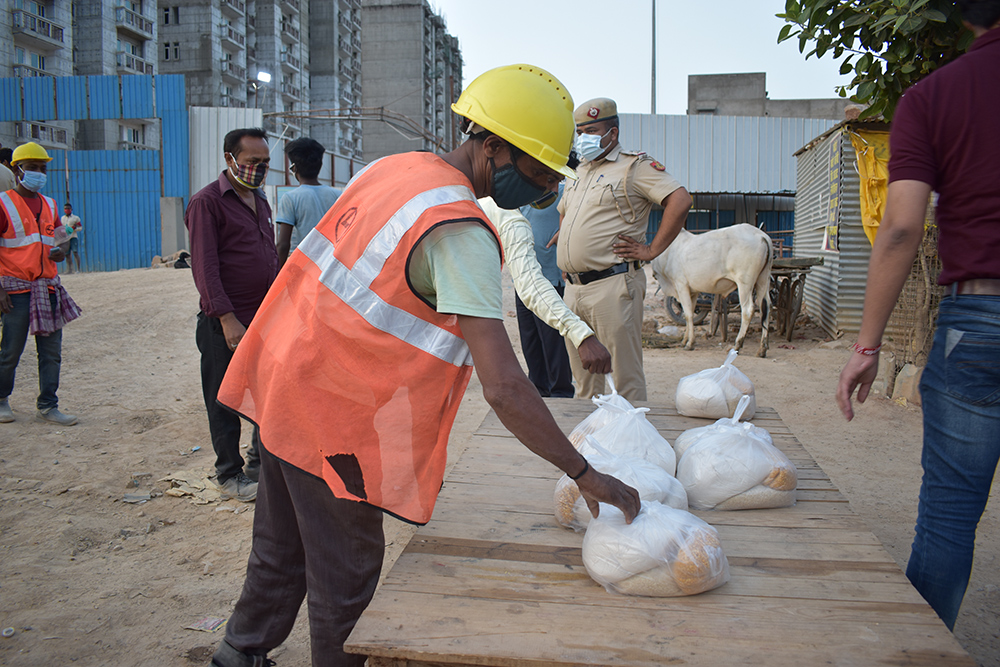 On the other side of the country, the Mann Deshi Foundation launched into action last year to provide much needed grocery kits to 10,000 women in rural Maharashtra during the lockdown. They also set up 12 to 15 community kitchens run by affiliated women’s groups to feed daily wage earners and others who could not afford to buy food.
Since the second wave of COVID hit the state this year, Mann Deshi has ramped up its relief efforts exponentially by providing food support to four major COVID centres within its locality with the support of its partners. They currently cater a total of 600 nutritious meals, feeding 300 patients twice a day across its four centres.
Like many other civil society organisations in India at this time, Mann Deshi has also been heavily involved in supporting the healthcare infrastructure within the community. With assistance from RYTHM Foundation, it has been able to cover three months’ salary for medical staff and to continue providing medical necessities to COVID treatment centres such as Personal Protective Equipment (PPE) kits, oxygen concentrators, and oxygen cylinders.
On the other side of the country, the Mann Deshi Foundation launched into action last year to provide much needed grocery kits to 10,000 women in rural Maharashtra during the lockdown. They also set up 12 to 15 community kitchens run by affiliated women’s groups to feed daily wage earners and others who could not afford to buy food.
Since the second wave of COVID hit the state this year, Mann Deshi has ramped up its relief efforts exponentially by providing food support to four major COVID centres within its locality with the support of its partners. They currently cater a total of 600 nutritious meals, feeding 300 patients twice a day across its four centres.
Like many other civil society organisations in India at this time, Mann Deshi has also been heavily involved in supporting the healthcare infrastructure within the community. With assistance from RYTHM Foundation, it has been able to cover three months’ salary for medical staff and to continue providing medical necessities to COVID treatment centres such as Personal Protective Equipment (PPE) kits, oxygen concentrators, and oxygen cylinders.
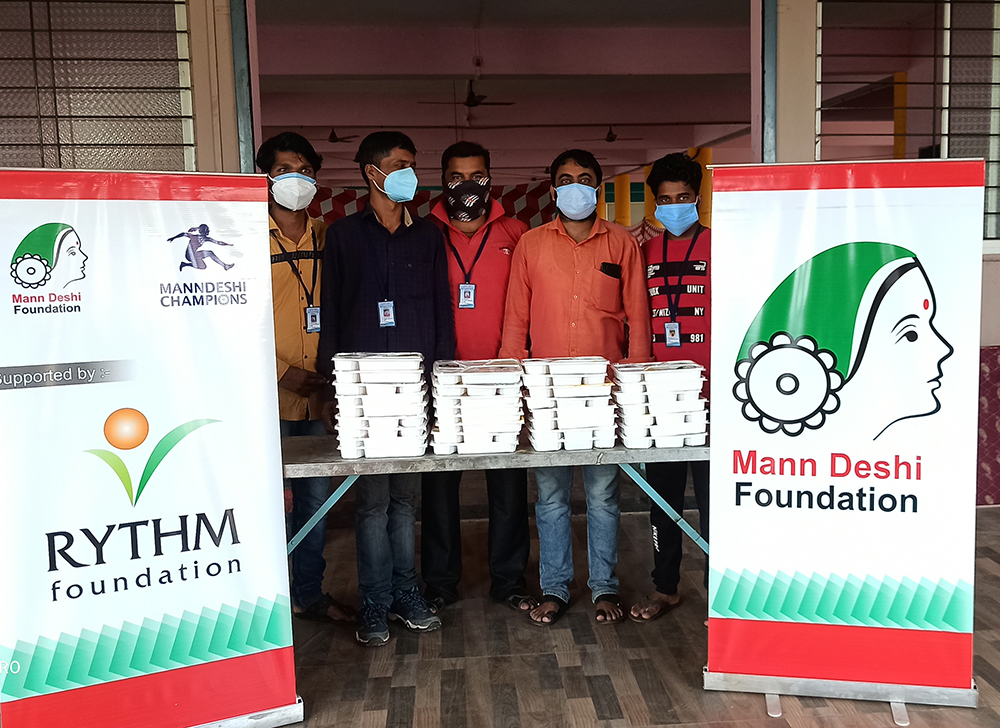 In preparation for a possible third wave, Mann Deshi is also setting up a medical diagnostic facility that will include a vaccination centre. The facility will be equipped with an automatic haematology analyser sponsored by RYTHM Foundation that can be used to perform multiple blood tests and diagnose a wide range of diseases.
In preparation for a possible third wave, Mann Deshi is also setting up a medical diagnostic facility that will include a vaccination centre. The facility will be equipped with an automatic haematology analyser sponsored by RYTHM Foundation that can be used to perform multiple blood tests and diagnose a wide range of diseases.
“Unlike other COVID centres which are set up solely to treat patients suffering from the disease, we hope this one will be a permanent fixture in the community. We already have the infrastructure and a dedicated COVID team ready to administer the vaccine as soon as it is available to us,” Omkar explains.

